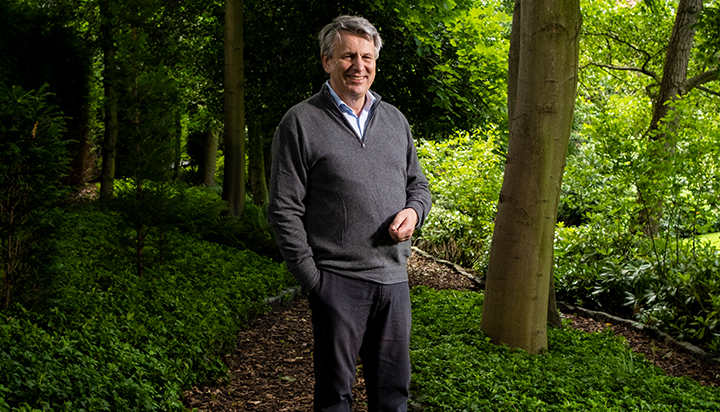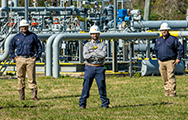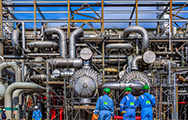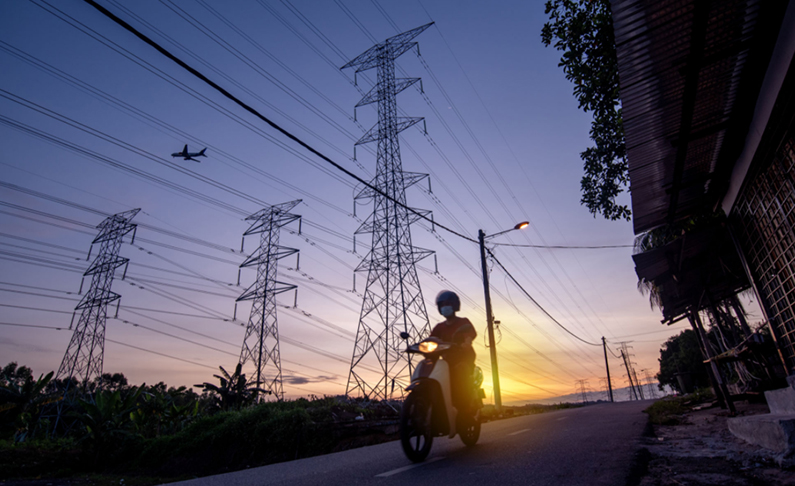Letter from the CEO

Ben van Beurden CEO
The COVID-19 pandemic made 2020 a deeply challenging year. Tragically, it led to the deaths of 20 of our Shell colleagues, painful evidence of the gravity of the situation in many parts of the world.
It was a time to pause and reflect on a new reality, and quickly adapt. We saw inspiring action in health care and science. There has been widespread collaboration focused on well-being between medical communities, businesses and governments.
We, at Shell, have been playing our part. We took additional steps to make workplaces safe for staff and contractors, and to maintain energy supplies. We increased production of isopropyl alcohol and donated it for hand-sanitising liquid and used our global supply network to source masks and ventilators to address shortages in some communities where we work. We offered free fuel for ambulances and free food and drink in certain countries for emergency workers. We also donated to relief efforts, including $10 million to COVAX, the programme working for equitable access to COVID-19 vaccines.
The pandemic caused severe disruption to the global economy and people’s livelihoods, and along with this came a fall in energy demand and carbon dioxide emissions. It led to a renewed focus on the way society interacts with the natural world.
In 2020, Shell spent a lot of time looking at what we do in society and how we contribute. We refreshed our business strategy and, when we announced it in February 2021, we called it Powering Progress.
Powering Progress sets out our goals for powering lives and livelihoods, and respecting nature by protecting the environment. It lays out how we believe Shell can and must play a role as the world accelerates towards a future of zero- and lower-carbon energy. It is designed to integrate sustainability with our business strategy.
Net-zero emissions energy business
We have set a target to transform into a net-zero emissions energy business by 2050, in step with society. This supports the more ambitious goal to tackle climate change in the UN Paris Agreement: to limit the rise in average global temperature to 1.5 degrees Celsius.
Becoming a net-zero emissions energy business means that we are reducing emissions from our operations, and from the fuels and other energy products we sell to our customers. It also means capturing and storing emissions safely underground using technology or balancing them with natural carbon sinks such as forests.
We have set short-, medium- and long-term targets to reduce the carbon intensity of the energy products we sell, and have tied the short-term targets to our staff incentive structure. This includes lowering emissions from our operations, including the energy consumed in running them. It also includes the emissions from oil and gas that others produce and we then sell in our energy products – an industry-leading approach.
And in another first for the industry, we will offer shareholders an advisory vote on our energy transition strategy at our Annual General Meeting. We will do this every three years, starting in 2021.
More than 90% of Shell’s emissions come from the use of the energy products we sell, so we will help our customers cut their emissions by selling products that have the lowest environmental impact.
In 2020, we continued to invest in low- and lower-carbon products that customers are going to need increasingly: biofuels, electric-vehicle charging networks, hydrogen and renewable power.
We will work with customers and sectors to develop cleaner energy alternatives. It will require technologies and fuel solutions as well as government policies and regulations to help customers make lower-carbon choices.
Some sectors will be very hard to decarbonise. Aviation is one. Shell has an extensive aircraft refuelling network. We can work with customers and suppliers to develop a profitable market for sustainable aviation fuel. In 2020, we signed a deal with Amazon Air to supply up to six million gallons of sustainable aviation fuel.
Respecting nature
For many years we have followed guiding principles and standards that seek to protect the environment. Now we are stepping up our environmental ambitions and shaping them to contribute to the UN Sustainable Development Goals.
For example, we are working to keep waste from our operations to a minimum and run our operations and supply chains so they can contribute to a circular economy. This means designing materials and products that can be more easily reused and recycled.
We cannot lose focus for a second when trying to protect the environment. We must continue to take action to prevent and deal with oil spills, including work to reduce operational spills. In Nigeria, we also continue to tackle environmental challenges related to spills caused by oil theft and sabotage of pipelines.
Powering lives
We power millions of lives by providing energy for homes, businesses and transport, for cooking, heating and lighting. We power lives by paying taxes, boosting local economies and developing people. We also do this by helping achieve universal access to clean, affordable energy. Our ambition, by 2030, is to provide reliable electricity to 100 million consumers in emerging markets who do not yet have it.
In 2020, the death of George Floyd and its aftermath underscored society’s problem with racism. Shell is part of society, and while we may have made advances in diversity and inclusion over the years, we have to acknowledge that we can do much better. For Shell, for me and the Executive Committee, these events have led us to seek a deeper personal exposure to racial injustice in Shell. We cannot take a stand in society, nor be a force for good, if we do not first fix ourselves.
In 2020, we launched a global Diversity and Inclusion Council for Race, which I sponsor. The council aims to build on our actions to advance diversity in our workforce so it better reflects communities where we work and from which we draw talent. We will report publicly on our progress.
We are making advances in gender equality. At the end of 2020, the proportion of women in senior leadership positions at Shell was 27.8%, an increase from 26.4% in 2019. We aim to achieve 30% representation of women in these positions by the end of 2021, 35% by 2025 and 40% by 2030.
Our core values
We must live by our core values of honesty, integrity and respect for people and maintain our focus on safety. This includes our commitment to doing business in an ethical and transparent way.
In 2020, we began what will be a multi-year refresh of our safety approach. It places greater emphasis on increasing the chances of people emerging unhurt even if there is an incident.
It requires people to be open to learn, both from things that went well and from their mistakes, and to confidently share ideas and concerns with colleagues. We are also adopting a simpler set of industry-standard life-saving rules.
In 2020, there were zero fatal accidents in Shell-operated facilities for the first time in our history. Staff demonstrated an extra level of vigilance in a very difficult year. I want this achievement to spur us on so that we keep working hard on safety.
Our employees must show absolute integrity every day. They must meet the ethical standards that Shell, and society, expects.
We continue to work hard to raise standards in this area, learning from our own experiences and from others. In March 2021, we were pleased that Shell and four former employees were acquitted in a long-running trial in Milan related to a Nigerian oil block called OPL 245. But the case has been a difficult learning experience for us.
In 2020, we developed a new decision-making framework to ensure that everyone at Shell continues to make ethical decisions in line with our code of conduct. The framework, which has been externally reviewed, will help staff to think through, in a structured way, the legal, ethical and external consequences of the decisions they face in their daily work. We are launching the framework in 2021.
And we are being more transparent about what we do and why we do it. In 2019, we were one of the first companies to conduct a review of industry associations to check alignment with our climate policies. In April 2021, we published our third report on this subject. In late 2020, we published our second annual Tax Contribution Report, which sets out the corporate income tax that Shell companies paid in countries and locations around the world.
So we are taking action and we are making progress. This Sustainability Report shows how we are achieving this progress. Once again, I would like to thank the members of the independent Report Review Panel, who help us provide balanced, relevant and responsive reporting. We are a founding member of the UN Global Compact and we continue to support its corporate governance principles on human rights, environmental protection, anti-corruption and better labour practices.
In 2020, the COVID-19 pandemic changed the world and people’s lives in ways we could never have imagined. It was a tough year for everyone. It was a tough year for Shell, but also a year when we set a clear path for our future.
We will take firm and transformative steps to address the carbon dioxide emissions from our operations and from the energy products we sell so that we can become a net-zero emissions energy business. We will work with our customers to develop the low-carbon markets of the future. A major reorganisation, which we announced in 2020 and which takes effect from August 2021, will make us more responsive to customers. We shall be a nimbler organisation with lower costs.
We will continue to step up in other areas, to respect nature, power lives and livelihoods through our products and activities, and by supporting a more inclusive society. We must remain true to our core values and sustain a relentless focus on safety.
By doing all this, we can deliver positive change for our customers, our communities, our investors and for society.
Ben van Beurden
Chief Executive Officer




